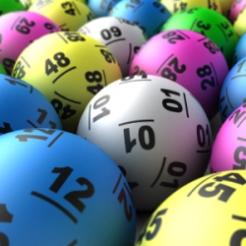The National Lottery paid a total of £781m in duty to the HMRC in 2011/12, an increase of nearly £100m on 2010/11.
The three years previous showed an average rise of circa £30m each year. A spokesman for Camelot, which runs the National Lottery, said that the increase was directly related to sales revenue. The National Lottery pays 12p in every £1 of revenue to the HMRC and has paid £10.6bn in duty to date.
The National Lottery is currently the only lottery which pays duty to the HMRC, but earlier this week a cross-party committee of MPs recommended that this responsibility be extended to the any other national lottery.
The committee recommendations relate to an ongoing dispute between the National Lottery and the Health Lottery. The National Lottery raised concerns with the Gambling Commission over the legality of the Health Lottery in October last year, when the new lottery was formed.
Camelot, which is now taking legal action against the Health Lottery, believes that the structure of the Health Lottery – made up of 51 society lotteries – is both against "the spirit and letter of statute and regulation".
"It is clear that The Health Lottery has positioned itself as a direct rival to the National Lottery. This is in direct contravention of the intention and will of Parliament that there can only be one National Lottery," a Camelot spokesman advised.
Due to its structure the Health Lottery is not considered to be a 'national lottery', and therefore would not be expected to pay any duty.
However the committee also recommended clarification from the government on what constitutes a national or a society lottery, which could lead to the Health Lottery being re-classified.
Responding to the committee's recommendations the Camelot spokesman said: "We note that the report requests that government provides clarity on what constitutes a national lottery and what constitutes a local lottery connected to other local lotteries. Such clarity is exactly what we’ve been seeking all along, and we look forward to the government’s response on this.”
The Health Lottery disputes that it is in competition with the National Lottery and advises that "the unique structure of society lotteries and the rules governing external lottery managers mean that [the Health Lottery] generates a significant income for the exchequer through irrecoverable VAT".
A Health Lottery spokesperson told civilsociety.co.uk: “Society lottery structures make a hugely valuable contribution to the community through the good causes they enable and fund, which are often small local projects niche in nature. The 51 Society Lotteries that raise good cause money through the Health Lottery have strict limits on the prize money, while Camelot is free to offer prizes worth £100m in a single week, so the economics are not remotely comparable.”
An independent impact assessment shown in High Court showed that the effect of the Health Lottery on the National Lottery is no more than £300,000 a week. The National Lottery made record sales in the last financial year, leading to the duty payment.
Some 20p of every £1 of Health Lottery ticket purchase goes to health-related good causes, it has raised £20m in nine months towards these causes. The National Lottery gives 28p of every £1 of National Lottery revenue to good causes.









